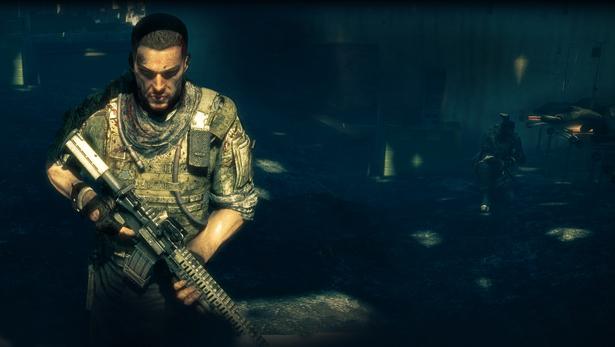Culture
How Gaming Almost Peaks In “Spec Ops: The Line” (Pt. 3)

The following is part three in an ongoing Heave series by Tom Harrison about the recently released third-person shooter Spec Ops: The Line, and how aggravatingly close it comes to realizing the fullest long-term potential of video games without successfully doing so. The first two installments can be found in the sidebar to the right.
Number three…well, number three is a little different, and needs some context. One of the things SO:TL does best is play with the protagonist/player relationship so often taken for granted in games. The opening credits include your own selected username as a “special guest,” establishing from the start that you, as a player, are both an integral part of the experience and separated from it. That is, while you control Walker, you are also not him. The game is recognizing you as both present in the fictional game world and present as a person on a couch. A particularly cogent example comes when Walker’s mind starts getting wobbly, and the gameplay tips in the loading screens transition from the standard “Use grenades against entrenched enemies” to stuff like the definition of cognitive dissonance, and, most impressively, “you are still a good person.” This one line on a loading screen is fucking momentous in understanding the game, its triumphs and its failures.
Never before in the game does the on-screen loading text make an indication that it is speaking diegetically to Walker himself. All evidence suggests the contrary—what would an Army Dude care about which button threw grenades in a video game? These tips are directed at you-as-player, and when they acknowledge this by actually including the direct-address “you” in the text, it’s a startlingly unusual admission of the player’s role in all this. You are a good person, the game reassures, because you didn’t actually do this bad stuff in the game. It’s make-believe. You were just sitting on your couch. Captain Walker is responsible. Sure, the player controls Walker, but you don’t really have a say in what goes on. The game’s events are designed and will unfold as determined. You don’t have a choice.
Shouldn’t you, though? And how sure are you that you don’t? The weak rationalization of “you are still a good person” echoes Walker’s own repeated assertion that “I didn’t have a choice,” and they both ring false. The game makes it clear that at the first sign of how truly fucked-up Dubai had become, Walker should have retreated and called for backup. He didn’t, because he felt moving forward was what he had to do. The thing is, in a video game, you literally do have to move forward to progress in the game. Does that excuse the things you-as-player do? Are you morally blameless because you only did what was necessary to move forward? Walker uses the same logic, and his reasoning crumbles spectacularly under scrutiny. Why should your need to progress be more valid than his?
The game’s most successful moment wrestles with these questions beautifully. At one point, you fight through numbingly large waves of enemies to rescue your lost comrade, only to find him killed by angry civilians. The furious mob blocks your path, and the game paints the targeting reticle over their heads. You have to move forward—it’s a game, after all. Progress is there for the taking if you make the choice to mow down the crowd. Most do it. I did. It’s what I had to do. I didn’t have a choice, I thought.
But I did, and that’s where the game shows its true brilliance. The game wants you to take the easy way and shoot the crowd, but you can disperse them non-lethally by shooting into the air. Written out, this choice sounds dangerously close to becoming a simple good-or-evil, black-and-white, totally unambiguous binary that plagues the so-called moral choice system of video games. No one is going to willingly be a dick and kill unarmed folk. The only way to make this choice something affecting is to take the clinical, logical calculations (kill bad, not kill good, better not kill!) out of consideration, which the game does spectacularly.
The civilians killed one of the game’s major characters. You went through hell to save him. They, like everyone else you have encountered, hate you and want you dead. They won’t let you move forward, an absolute necessity for both Walker as a character and you-as-player. The reticle is right there. And this is the part that pushes this moment over the edge from pretty cool to MOTHERFUCKING GENIUS: you have no way of knowing you can get past without killing them. The game doesn’t say, Oi, this is the choice part! Choose well! It’s reasonable to assume you don’t have a choice. So pull the trigger. It would be so easy. And it was easy. And at the time, it felt right.
Check back tomorrow for the conclusion, including Tom’s final step for helping Spec Ops to reach a point of perfection.